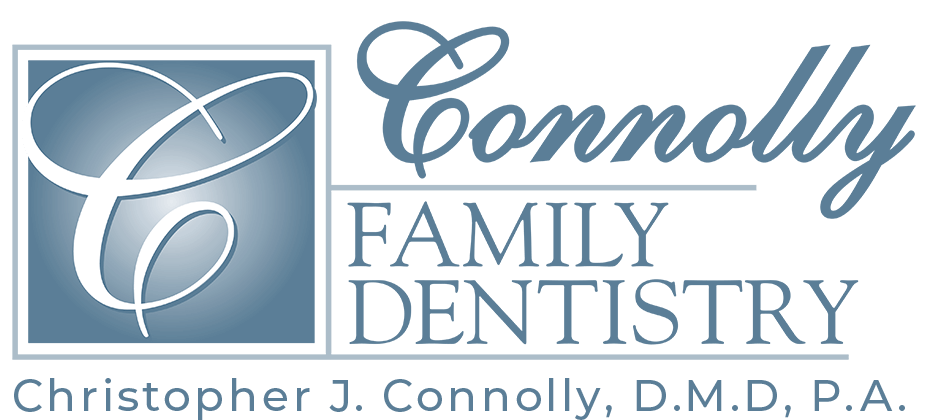TMD/TMJ Solutions in Sewell
Understanding TMD
Temporomandibular Joint Disorder, often referred to as TMJ, is a condition affecting the joint that connects the jaw to the skull. The symptoms can range from mild discomfort to debilitating pain, and its effects aren’t limited to the jaw itself. TMD can impact the entire craniofacial region. If you feel you may be suffering from TMD, you’re not alone, and with recent breakthroughs in technology there are many great solutions that have come to the market. At Connolly Family Dentistry, we specialize in diagnosing and treating TMD and its associated symptoms, providing relief to those who have been searching for answers.
Dr. Connolly is a dedicated member of the American Academy of Craniofacial Pain, and is here along with our wonderful team to help you on your journey to relief!


Symptoms to Watch For
If you’ve found yourself experiencing any of the following symptoms, it’s possible you might be suffering from TMD:
- Jaw pain or tenderness
- Difficulty or discomfort while chewing
- A clicking or locking sensation in the jaw
- Earaches or ringing in the ears (tinnitus)
- Frequent headaches or migraines
- Facial pain or neck pain
Our Approach to Treatment
Our approach is holistic and thorough. We believe in addressing the root cause rather than just treating symptoms of your TMD.
Check out Dr. Connolly's segment on craniofacial pain that recently aired on CBS on American Health Front

Advanced Diagnostic Tools
Accurate diagnosis is the first step toward effective treatment for TMD, and here at Connolly Family Dentistry, we are fortunate to have the latest technology in the field. Here is a high-level breakdown of some of the amazing tech we can utilize to assess your unique case:
iCAT FLX
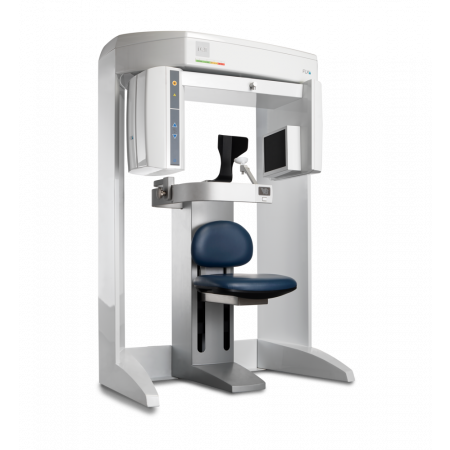
Joint Vibration Analysis
This tool provides insight into the function (or dysfunction) of the jaw joint, allowing us to plan exceptionally targeted treatment.
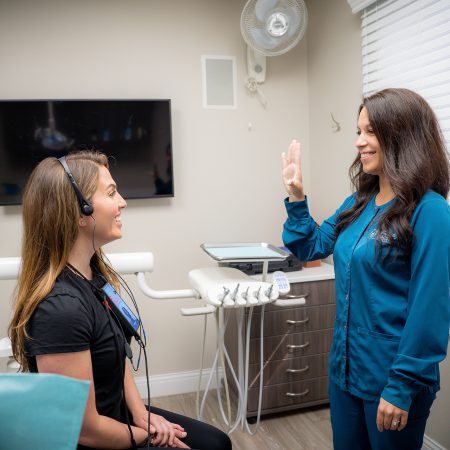
Tailored Treatments
Every individual is unique, and so is their TMD. Our treatment plans might include:
Orthotics and Appliances: Custom-made devices designed to reposition the jaw, alleviate discomfort, and improve function.
If you think you may be experiencing symptoms of TMD, contact us today!
 When it comes to dental problems, you’re probably used to hearing all about the common ones that can negatively affect your teeth, such as cavities, gum disease, and even oral cancer. But did you know that one of the most painful oral conditions is actually caused by a part of the body that you may have never heard of before. We’re talking about the temporomandibular joints, also known as TMJs.
When it comes to dental problems, you’re probably used to hearing all about the common ones that can negatively affect your teeth, such as cavities, gum disease, and even oral cancer. But did you know that one of the most painful oral conditions is actually caused by a part of the body that you may have never heard of before. We’re talking about the temporomandibular joints, also known as TMJs.
TMD (temporomandibular joint disorder) is a complex range of disorders that affects a large number of people in the US. Patients frequently refer to TMD as TMJ, despite the fact that TMJ stands for temporomandibular joint, which is the joint located immediately in front of the lower half of the ear.
The joint is responsible for the movement of the lower jaw and the opening and closing of the mouth. The dislocation of this joint, or a problem in its action, can cause pain and make daily activities, such as eating, difficult.
Instability in the jaw joints, or TMJ, may be the cause of your unexplained chronic headaches, earaches, or other facial problems. Many people with headaches, earaches, or jaw pain are unaware that their symptoms could be treated by a dentist.
These joints may be tiny, but they serve a crucial function, as they’re responsible for connecting your lower jaw to your skull. However, this means that when they’re even slightly misaligned, it can cause truly debilitating symptoms, negatively affecting both your dental health and your overall wellbeing. That’s why consulting with a local dentist is important if you suspect you may be suffering from this ailment.
Common signs of TMJ disorder include:
- Persistent pain in the face, neck, head, shoulders, or back
- Constant headaches
- Jaw joints that pop or click
- A jaw that feels unusually stiff
- Constant earaches
- Difficulty opening and closing your mouth when chewing
There are several therapy options for patients who are suffering from TMJ disorder, and no two cases are the same. Many patients whose symptoms are primarily caused by teeth grinding (bruxism) can often find relief by wearing a customized oral appliance during sleep. Other patients may require physical therapy or drug therapy to help alleviate the pain. When it comes to cases that are truly severe, surgery may be necessary. A dentist trained in TMJ treatment can offer the specialized help you need and recommend treatment options that fit your unique needs and concerns. With a professional touch, you can escape pain and get back to smiling bigger and brighter than ever before.
TMJ Disorder Treatment Near Me – TMJ Dentist in Sewell & Washington Township, NJ – TMD Specialist Near Me
Relief from TMD at Connolly Family Dentistry
At Connolly Family Dentistry in Sewell, NJ, we can treat your temporomandibular joint disorders. Do you suffer from an array of symptoms including dizziness, earaches, clicking of the jaw, pain in the face, head, neck, shoulders and/or back, without knowing the cause? These are some of the most common signs and symptoms of Temporal Mandibular Joint (TMJ) Dysfunction. Other symptoms of this disorder include excessive wear and fracturing of teeth and tooth loss. Previously, many patients seeking medical cures for these types of problems would go from specialist to specialist to ultimately be told it was “all in their mind.” Most often, after years of unsuccessful treatment, these individuals accepted and tolerated their discomfort and pain, usually with the aid of over the counter drugs, such as aspirin, Motrin or Tylenol.
Today, the condition termed TMJ or TMD (Temporal Mandibular Dysfunction) accounts for a large number of these previously incurable and painful ailments. The above mentioned discomforts are just some of the symptoms of the syndrome–not the problem itself. Without correcting the initiating problem (damage or misalignment of the jaw joint), the symptoms of TMD will return. The doctors at Connolly Family Dentistry are passionate about properly evaluating and treating our patients so that they remain symptom free.
With new knowledge and technology, dentists are currently able to diagnose and treat TMJ problems that had previously been over-looked or misdiagnosed. Additionally, the medical community has become more aware of dentistry’s involvement in diagnosing and treating TMJ dysfunction, and more and more physicians are now referring patients to dentists for proper evaluation and treatment.
At our Sewell dental practice, we have been trained in the diagnosis and treatment of TMJ dysfunction. Drs. Connolly, McCarty, and Connolly have completed the intensive and challenging continuing education courses offered by Dr. Peter Dawson for the evaluation of occlusion (how you bite). In addition, they have studied under internationally renowned Dr. Mark Piper, focusing specifically on the anatomy and physiology of the TMJ, pathology, diagnosis and treatment options.
Malocclusion and the Temporal Mandibular Joint
Your jaw joint, which holds your lower jaw in place, is suspended beneath your skull by an intricate system of muscles and tendons. The jaw joints, also known as the Temporal Mandibular Joints (TMJ) are some of the most complex in the body. The jaw joints, surrounding muscles, and the fit of your teeth are closely interrelated, each affecting the other as you make everyday jaw movements such as speaking and chewing.
Occlusion is the term used to describe the way your teeth fit together. When your teeth are not in proper relation to each other and to your jaw joints, the jaw automatically shifts to a new position in an attempt to compensate for the misalignment of your teeth – a condition known as malocclusion (teeth that do not fit together properly). Ideally, the teeth should fit together in a comfortable relationship so that there is no need for the jaw to reposition itself in order to avoid pain and muscle discomfort. When malocclusion exists, the jaw shifts to accommodate the teeth, which puts pressure on other jaw joint areas. The body attempts to compensate for the misalignment of the jaw by using the muscles of the face and neck to help pull the joint into the proper position. Consequently, the patient may clench or grind their teeth; they may notice premature tooth wear, tooth fracturing or tooth loss, and stress (pain) in the muscles and tendons of the face and neck. Eventually, the muscles of the face, jaw and neck fatigue and the body calls on the muscles of the back and shoulders to compensate. Patients may then also experience muscular aches, pain in the face, neck, shoulders and back, dizziness, earaches, ringing in the ears (tinnitus), and headaches. Headaches, including migraine and tension headaches, may have a direct correlation to the specific anatomy and physiology of your temporal mandibular joint. Be sure to discuss your headache history with your dentist.
Patients with TMD may hear a loud “click” when they open their jaw wide to eat or speak. A clicking or popping jaw is not normal. The click signifies the displacement of the cartilaginous disc that normally resides between the bones of the jaw to provide cushion and support. Without this support, the bony structures of the jaw will deteriorate causing pain and difficulty in opening and closing the mouth. The clicking can be embarrassing, painful, and may progress to more serious problems.
TMJ Disc Location
Malocclusion is a very common condition causing pain in the area of the Temporal Mandibular Joint. Other health problems, including arthritis, diabetes, tumors, nutritional deficiencies, trauma and infection, can also be responsible for TMJ discomfort. It is also notable that many TMJ patients have had previous orthodontic therapy (braces), so be sure to report any of the aforementioned signs and symptoms to Connolly Family Dentistry in Sewell, NJ, even after your braces have been removed.
Diagnosing and Treating the Problem
Many patients present for routine check-ups totally pain free, while some experience discomfort and popping or clicking in their ears. Others exhibit excessive wear of their anterior teeth, to the degree of totally obliterating the tooth enamel (the hardest substance in the human body). These are signs and symptoms of TMJ dysfunction. Our Sewell TMJD-trained dentists cannot stress enough that TMD, like tooth decay and periodontal disease, is progressive. The condition will not self-eliminate, but rather, it will worsen over time. TMJ deterioration occurs at different rates for every individual. Once a patient is symptomatic, the underlying dysfunction has usually been in existence for a long time, unless caused by a sudden, traumatic injury such as a jaw fracture or whiplash.
Before correctly diagnosing and then prescribing the proper treatment for a specific TMJ problem, a variety of diagnostic procedures, including X-rays and a complete occlusal analysis, may be necessary. An MRI may be taken of the jaw joint if deemed necessary by your dentist. The MRI will provide a clear picture of the patient’s unique TMJ anatomy and the position of the various structures within the jaw joint. It will also allow your dentist to detect any disease processes within the jaw joint. The doctors at Connolly Family Dentistry are among the very few dentists in the area that are trained to interpret an MRI.
The treatment of TMJ dysfunction is completely individualized. There is no single therapy or drug regimen that is universally beneficial. Jaw re-positioners (i.e. a Bruxing appliance) may be used to help ameliorate symptoms and reverse TMD. Such appliances, which are similar to a mouthguard, are worn for a given period of time as directed by our Sewell, NJ dentists. The appliance is refined and adjusted until it eliminates the bite disharmony and pain. Permanent treatment that would attempt to duplicate the effects of the appliance would then be prescribed. Other treatment techniques include equilibration, occlusal adjustment, orthodontics, certain medications, restorative procedures such as crowns, or a combination of some or all of the above.
TMJ Dentist in Washington Township – TMJ Treatment Near Me – Sewell, NJ TMJ Denitsts
Meet Your Award-Winning Dentist

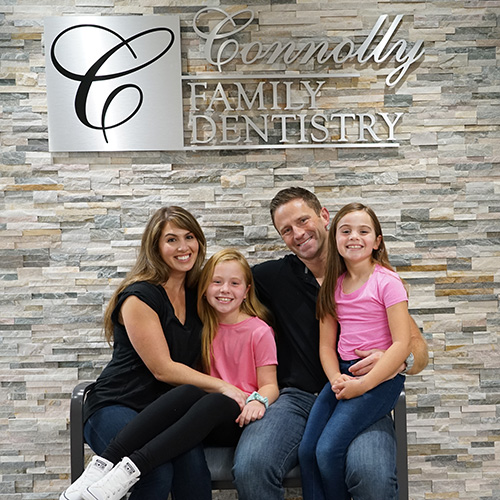
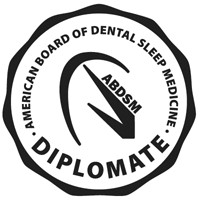
Christopher John Connolly, DMD
Christopher John Connolly, DMD, joined the practice in 2007 after completing his dental studies at Temple University School of Dentistry. Upon graduating Magna Cum Laude, Dr. Connolly received several awards for his outstanding work in prosthodontics, which included full mouth rehabilitations and cosmetics treatment. He has continued his studies year after year taking advanced courses in smile makeovers and complex full mouth rehabilitations so that he can help people gain and maintain their healthy smiles.
Dr. Connolly has also found his passion for helping people who suffer with TMJ and sleep apnea. Over the years he has taken hundreds of hours of continuing education with some of the top instructors and clinicians from around the world so that he can find the best ways to help people who suffer with pain. He has dedicated a large portion of his practice to helping these patients regain their lives again and live without pain.
His current professional memberships include:
- American Dental Association (ADA)
- New Jersey Dental Association (NJDA)
- American Academy of Craniofacial Pain (AACP)
- American Academy of Orofacial Pain (AAOP)
- Diplomate of the American Academy of Dental Sleep Medicine (AADSM)
- Southern Dental Association of New Jersey
- Frank Spear Study Club
Dr. Connolly earned his undergraduate degree from Villanova University where he majored in Biology and minored in Business and Psychology. Dr. Connolly and his wife Jenna reside in Mullica Hill with their two daughters and golden retriever MaggieMoo. When not perfecting smiles or relieving patients’ pain, Dr. Connolly enjoys fishing, spending time with his family and attending Phillies and Eagles games.
Our Commitment To Quality, Affordable Care
At Connolly Family Dentistry, we believe that access to quality dental care and treatment should not be prevented due to a lack of affordability. As fellow members of the Sewell community, we are committed to making sure that all patients that come through our office are entitled to treatment options that are as affordable as possible.
We will work to maximize your out-of-network dental benefits, though we are currently not in network with any major insurance plans. That said, many times out-of-network benefits provide benefits that are comparable, if not more beneficial than in-network coverage. Please don’t hesitate to contact our staff to learn more about your coverage and options!
Proper oral hygiene and treatment are essential components of you and your family’s overall health, and it has been widely shown that failure to maintain proper oral health can lead to more serious health conditions and related complications. As part of our commitment to serving our community, we also offer several financing options to meet the needs of every patient.
If you would like to go over the full list of options we offer, explore our Finance Options Here or ask about our pay in full savings!
We look forward to serving you and your family!

